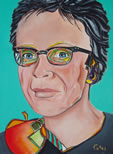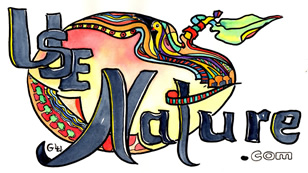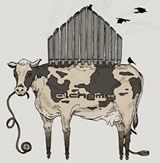useNature.com ... Holistic Therapy Lifestyle Foundation - Nutrition Guidelines
Optimal Nutrition Guidelines
A Balanced Diet to achieve Good Health
Physical & Mental aspects in relation to your Health
Article: Foundation of Nutritional Health - Part 4 -
Holistic Diet & Optimal Nutrition Guidelines
... nutritional strategies to support a health lifestyle
..... by Dieter Luske N.D.-D.C.H.-D.M.H.-D.H
Holistic Therapy Consultant - Gold Coast - Canungra
Optimal Nutrition:
Nutrition means the raw material which nature requires for building and constantly re-building the cells of your body. It includes Proteins, Carbohydrates, Fats, Vitamins, Minerals, etc. necessary in the preservation and regeneration of a healthy body. Some of these properties are in all foods, though it is possible to destroy or diminish their value by cooking and processing.
Other properties are scarce and can only be obtained from a well balanced diet.
Care has to be taken not to include de-natured and toxic food items in your diet that could destroy or leach out some of those essential nutrients.
To change an unwell condition you start by changing your diet.
Better nutrition will speed healing and will help to prevent disease.
Living on processed and de-natured food will counteract your well-being, blocking the way to recovery and good Health.
Use Natures Optimal Nutrition General Principles:
-
Right eating habits.
-
General diet restriction.
-
General diet suggestion
Right Eating Habits
Do not eat if you are not really hungry, upset, emotionally stressed or still struggling internally with the previous meal. Enjoy what you eat! Unpalatable food is not well digested. Neither is it good to continue eating poor food just because one has acquired a preference for it. Stop eating before you are full. Acquire a liking for what is nutritionally good.
Good chewing increases assimilation of nutrients in the intestinal tract. Saliva contains digestive enzymes; therefore, well-chewed and generously salivated food is practically half digested before it enters the stomach.
Eliminate bad eating habits:
One way or another, we are all sucked into eating food which is not good for us. Marketing is part of that problem, the way we are brought up, education and comfort food is another.
Make yourself aware, that if you like junk food, sugar or salty food, that those tastes are acquired and not natural. You can re-educate yourself within 7 to 10 days. Within that time food may taste bland or boring, but after that time natural taste appreciation will return.
As long as you are holding on to processed food and drinks, you are helpless if it comes to sensible decisions, with other words you are emotionally addicted to junk.
Stop that habit as fast as you can, and take control over your taste buds, don't let chips and soft drinks rule your life.
General Diet Restriction
Avoid the following "Health Destroyers":
Sugar
Refined sugar supplies us with Sucrose and nothing else. Sucrose however is not an essential nutrient; we can lead perfectly healthy lives without it. In the process of digesting and metabolising sugar, a number of nutrients are required. Among these are Vitamin B1, B2, B3, B5, Potassium, Magnesium, Manganese, Chromium, Zinc and possibly more. That actually means, that sugar will deplete your body of vital Vitamins and Minerals, without giving anything in return.
Most weight gain is due to sugar consumption.
Hypoglycaemia is the result of a constant overdose and use of sugar; it leads to "Insulin Resistance", and it may lead to diabetes.
Most sugars you consume are hidden in 'Refined and Processed Food'.
Australians consume an average of 53kg each year, .....* this statistic includes people who have stopped sugar consumption a long time ago.
In soft drinks we find at least 7-10% of sugar, Snack bars about 30-40%, some as high as 70%. Cough lollies and medical syrups may also contain large amounts. All carbohydrates are basically sugars.
Sugar content in processed food has gone up, not down. - Food manufacturers know about sugar addiction.
Salt
Too much refined salt is linked with Hypertension, Strokes, Kidney Disease, Heart Disease, Fluid Retention and Menstrual Tension. Watch the hidden salts in processed food to find out your true salt consumption.
Hidden salts are in; cereals, bread, dairy products, meat and fish products, puddings and cakes, tinned soups, tomato juice, mineral water and nearly all canned vegetables. On top of that, there are Sodium containing food additives, including baking soda and baking powder. Salt is in most refined and processed food. Australians eat 5 to 10 times more salt than they require.
What is wrong with a high salt intake? The salt we mostly eat, is highly refined and contains only Sodium Chloride.
The salt we need is a combination of Sodium Chloride, Sodium Phosphate, Sodium Sulphate and about 84 other minerals and trace elements, which we all find in "Unrefined Sea Salt ". The amount of salt our system requires is easily provided within a balanced diet by food items naturally containing salts. If you need some additional salt, use high quality sea salts.
Alcohol
Drinking too much alcohol will damage the liver and pancreas, which are vital to digestion and metabolism. It can also damage the lining of the intestinal tract and adversely affect the absorption of nutrients, leading to sub-clinical malnutrition.
Regular heavy use of alcohol increases the body's need for B-group vitamins, particularly thiamine, niacin, pyridoxine, folic acid and B12, A and C as well as the minerals zinc, magnesium and calcium.
Alcohol affects availability, absorption and metabolism of nutrients, and if pregnant will have an adversely affect on your unborn baby.
The emphasis is on not drinking too much. - Drinking occasionally, and not more than 1 drink a day, may be acceptable.
Smoking
Not much to say, just STOP. Smoking is causing lung cancer, what more can one say.
Smoking is an irritant to your bronchial tract and the digestive tract. It increases the metabolic requirements of Vitamin C, all else being equal, by at least thirty per cent more than the typical requirements of a non-smoker. Smoking deprives your body of vital oxygen plus polluting your lungs with Cadmium. You never get well or stay well if you continue to smoke.
Coffee
A lot of new research has revealed that coffee has some positive effects as well as some bad ones .. the judgment on coffee is still out. However, like many things, it is the amounts and quality of coffee you consume.
My recommendation is to "Not use it regularly", use it for socialising and occasional enjoyment.
If you have specific medical conditions, you may need to cut it out all together.
A cup of brewed coffee contains between 90 and 120mg of caffeine, instant coffee contains 60 to 70mg. Even a cup of tea contains 30 to 70mg of caffeine. Analgesics, painkillers, headache powders, slimming preparations and common cold remedies may contain between 30 and 100mg of caffeine. Cocoa, can contain up to 50mg of caffeine.
Caffeine intake over 500mg can cause headaches, nervousness, tremors and general irritability. An intake of 1000mg can cause mental confusion, shivering, vomiting and extreme anxiety states. A 10,000mg dose can be fatal.
Caffeine is a stimulant of hydrochloric acid secretions in the stomach. Over consumption of Caffeine has been linked with many health problems.
On the positive side, caffeine in controlled dosage can be used to overcome certain ailments and more research has shown that coffee can be even a protective agent for some condition. 2 - 3 cups of quality coffee can help with mild depression, mental alertness, and more research is coming out every day.
Here are some sensible caffeine ground rules:
Coffee stimulates stomach acids, don't drink coffee on an empty stomach, esp. not if you have stomach problems. However, after a meal, coffee may be aiding digestion. Coffee contains some valuable anti-oxidants.
Chocolate and Cocoa are among the foods highest in calories. Besides caffeine, they contain high amounts of Oxalic Acid, which renders calcium useless for assimilation. This means double trouble for teeth. Certainly not a desired treat for children. Brush your teeth after coffee and chocolate consumption.
On the positive side, they contain valuable anti-oxidants, which unfortunately may be rendered useless by other harmful ingredients and high sugar content. Chocolate is a good source of Magnesium as well. To get the beneficial effects of Chocolate, only buy dark chocolate, organic and unprocessed without artificial ingredients, or use Cocoa powder.
Tea has many positive attributes, some of which unfortunately are spoiled by processing.
Try to buy only good quality tea, organic if possible, and switch over to a nice cup of "Green Tea", which is low in tannin and caffeine but because of the poly phenol's it contains, is anti-carcinogenic, anti-bacterial and anti-viral. It strengthens the walls of blood vessels while keeping them soft and inhibits cholesterol absorption.
Continue with ... "Don't eat Refined And Processed Food"
Next: Part 5 - click > Processed Food
or ... click here, for Use Natures Health Manual Menu
Article provided by ...
the editor of Use Nature, Dieter Luske
* Disclaimer - Any general advice given in any article should not be relied upon and should not be taken as a substitute for visiting a qualified medical Doctor.
 Dieter Lüske - Editor
Dieter Lüske - Editor
N.D.-D.C.H.-D.M.H.-D.H
Editor's Articles
Lifestyle Magazine
Natural Health and Lifestyle
Articles:
Diet Confusion?
Facebook Groups
Healing with Sound
Alchemix
Recording Studios
Sound Production:Recording - Mixing &
Mastering Services
Voice Overs
© 1998 - 2024 useNature.com: Australia - Holistic Lifestyle Portal - Natural Health - Mind Matters - Books & Art
Site Map - Terms / Privacy - Global Health | Free Alpha Music | Photography | Natural Links |

